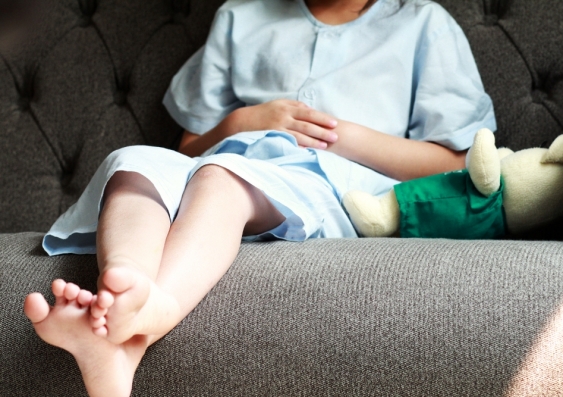Childhood cancer precision medicine program shows 'optimistic early results'
Australia‚ÄôsŐżZero Childhood Cancer program has so far identified the genetic basis of a child‚Äôs cancer in more than 90 per cent ofŐżcases, new research shows.
Australia‚ÄôsŐżZero Childhood Cancer program has so far identified the genetic basis of a child‚Äôs cancer in more than 90 per cent ofŐżcases, new research shows.

Isabelle Dubach
Media and Content Manager
+61 432 307 244
i.dubach@unsw.edu.au
AŐżprogram led by the Children's Cancer InstituteŐżthat aims to find personalised treatment recommendations for children with high-risk cancer has seen promising results, a team of researchers including UNSW Sydney academics has found.
The first major publication fromŐżZero Childhood Cancer Personalised Medicine Program (ZERO) was published this week inŐż. The results offer a new paradigm for the management of paediatric cancers, with global implications.
Zero Childhood Cancer researchers, UNSW Conjoint Associate Professors Paul Ekert, Mark Cowley and David Ziegler,Őżstudied the genomic data generated from the first 250 children enrolled on the program, with the support of a vast team of researchers and clinicians.
They showed that ZERO identified the molecular ‚Äď or genetic ‚Äď basis of a child‚Äôs cancer in more than 90 per cent of cases, and 70 per cent had at least one new potential treatment option identified based on their cancer‚Äôs genetic makeup.
They also found 32 per cent of children for whom a therapeutic recommendation was made had received the recommended therapy. The early results of those children showed that in 30 per cent of cases the tumour shrank, and in some patients completely regressed. In another 40 per cent of cases the tumour stopped growing and stabilised.
Conjoint A/Prof. Ziegler, clinician researcher and co-chair of ZERO’s national clinical trial, said these were very optimistic early results for children with the highest risk cancers.
‚ÄúWe have shown that ZERO has the potential to find personalised, novel treatment strategies for children with the most aggressive cancers who in many cases have no other treatment options available. Patients who received the molecularly informed, recommended therapy had a much higher rate of clinical benefit than we would expect from non-targeted approaches.‚ÄĚ
Conjoint A/Prof. Cowley said the success of the ZERO program represented a paradigm shift in the way high-risk childhood cancer can be treated.Őż
‚ÄúWe have developed a highly effective approach for molecularly profiling a child‚Äôs cancer and extracting the medically relevant information from this complex data in a clinically relevant timeframe,‚ÄĚ he said. ‚ÄúWe have shown that this approach informs patient diagnosis, identifies new potential treatment options, and identifies families that may be at higher risk of developing additional childhood cancers.‚ÄĚ
According to Conjoint A/Prof. Ekert, the fact that in more than 90 per cent of cases the genetic cause of the cancer was identified is important, as it provides a way to systematically identify the molecular basis of most childhood cancers.Őż
‚ÄúWe are now able to prise open the lid of the black box of this previously poorly understood collection of diseases,‚ÄĚ he said.
ZERO isŐża joint initiativeŐżled by Children‚Äôs Cancer Institute and Kids Cancer Centre at Sydney Children‚Äôs Hospital, Randwick, and a collaboration between eight hospitals and 23 research partners, including UNSW.
One of the world‚Äôs most comprehensive personalised medicine programs for children and young people with cancer, ZERO aims to identify the precise make-up of each child‚Äôs cancer by using sophisticated genomic testsŐżto identify the molecular changes driving their cancer, and matching these with treatments most likely to target their unique cancer. The aim is to identify a personalised treatment plan for each child.
While the data published in Nature Medicine reports on the first 250 patients of the national clinical trial, ZERO has now enrolled close to 400 children, and potentially actionable treatment recommendations continue to be made by the national cross-discipline expert tumour board for over 70 per cent of the children.
Every year, close to 1000 children and young people in Australia are diagnosed with cancer, and of these, three children die each week.Őż